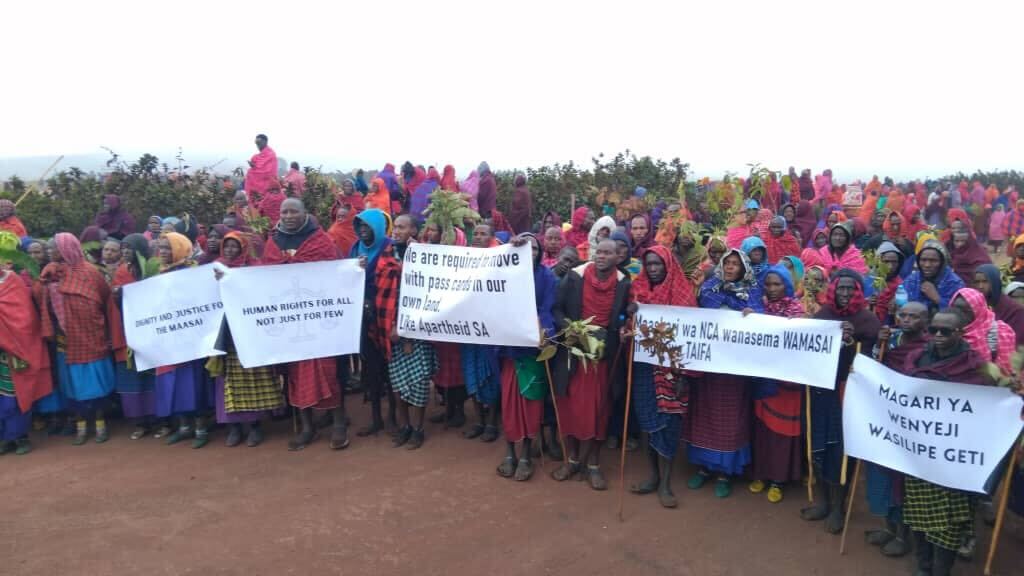The Maasai have legal rights to their land in the NCA, but in 1992, the Tanzanian government gave exclusive hunting rights to the Otterlo Business Corporation (OBC) and later sold lease rights to OBC without the Maasai’s consent. OBC, heavily influenced by the royal family of the United Arab Emirates, established a wildlife corridor for trophy hunting and elite safari tourism.
The Maasai were seen as an impediment to wealthy foreigners who wanted to hunt and build exclusive resorts, Brian Keane, director of Land is Life, an Indigenous advocacy organization in the U.S., told Mongabay in a phone call.
To remove so-called impediments, security guards and government forces violently evicted thousands of Maasai from their ancestral land. Under the guise of conservation, thousands of Maasai homes were destroyed, many burned to the ground. They were denied access to water and grazing grounds for their cattle. An Oakland Institute report estimates 20,000 Maasai were rendered homeless. Education, health care, and water services were shut down and most recently Maasai who continue to live in the area have been denied the right to vote, Keane said.
The government offered the Maasai new homes 800 kilometers (500 miles) away, but relocation came with a completely different lifestyle. A local leader, speaking with Mongabay on condition of anonymity, noted that several individuals who moved to the new community died in car accidents due to their unfamiliarity with roadways. Many Maasai chose to return to their homeland to fight for their rights.
In an Aug.7 press release, Tigere Chagutah, Amnesty International’s regional director for East and Southern Africa, criticized the evictions, highlighting that they were carried out under the guise of conservation, while OBC engaged in illegal trophy hunting activities, violating Tanzania’s wildlife conservation laws.
The local leader revealed that foreign hunters used semiautomatic weapons to indiscriminately kill wildlife, including “thousands and thousands of birds.” Maasai herders have long been responsible stewards of the land, coexisting with wildlife, they said.
A day after the protest, the Maasai allowed the road to reopen, giving the government a three-day window to respond to their demands. They are calling for recognition of their right to live on their ancestral land and reinstatement of essential services, including the right to vote.
The local leader said the Maasai are deeply connected to their land and cannot leave. “Their ancestors have been buried on that particular land. Traditionally you are not allowed to leave your ancestors behind. The Maasai believe that if you bury someone in the land, their spirit will remain and you have a responsibility to your family to take care of them and protect the same land.”
Source: Mongabay




